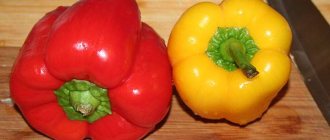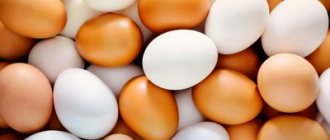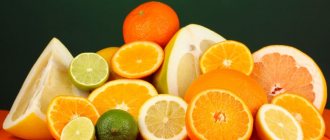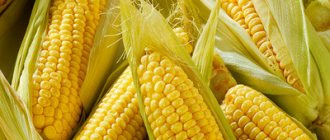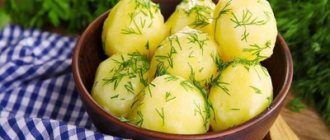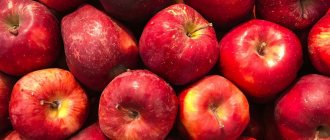Our expert answers your questions:
Natalia Grigorieva
specialist in anti-age medicine, nutritionist, general director of the Premium Aesthetics clinic
– Shrimp have a lot of advantages: few calories, but a lot of protein, various microelements – phosphorus, zinc, copper and a certain amount of iodine. Protein is the building material for all cells, hormones and enzymes. Zinc is an element necessary for the synthesis of sex hormones and for the growth of muscle fibers, as well as to support the functioning of the immune system. Phosphorus is a structural element of bones and teeth. Copper is part of a number of enzymes responsible, in particular, for the formation of collagen and elastin. Iodine is part of thyroid hormones.
In addition, modern rules of rational nutrition prescribe consuming enough protein, but limiting yourself to saturated fats of animal origin. That is why nutritionists recommend giving preference to fish and seafood, which includes shrimp. They can be safely included in all healthy nutrition systems and included in any meal.
Wild or "cultured"
All animals raised in captivity are fed certain types of food, while in the wild the animal chooses its own food, which is usually more varied.
It's the same with shrimp. Wild ones will definitely have a richer diet than shrimp raised in aquaculture farms. Moreover, wild shrimp caught in different seas and oceans are richer in microelement composition. This in turn affects the taste of shrimp - Argentine shrimp will be significantly different from Pacific shrimp.
Experts advise
Nutritionists recommend that patients avoid eating smoked and pickled shrimp if they have gastritis. They also do not recommend including foods that are fried in oil or cooked in a deep fryer. Fried seafood puts increased stress on the stomach and can provoke attacks of nausea, vomiting, and heartburn.
Patients with hyperacid, normoacid and hypoacid gastritis are allowed only boiled shrimp. As an addition, use white sauce prepared with the addition of low-fat sour cream. The same applies to patients who suffer from an erosive or atrophic type of disease. If the disease worsens, it is better to avoid shrimp. The source of protein for such patients can only be boiled chicken breast or hard-boiled eggs.
About cholesterol
There is really a lot of cholesterol in shrimp - about 150 mg of cholesterol per 100 grams of product. If on the eve of biochemical blood tests you eat a sufficiently large amount of shrimp (500 grams or more), you can see a sharp increase in cholesterol.
At the moment, they note that if you eat shrimp every day and in small quantities, you can provoke a slight increase in total cholesterol. But at the same time, this growth increases due to an increase in the concentration of high-density lipoproteins in the blood, that is, the best cholesterol, which transports building substances into the cell. In general, eating shrimp improves the proportion between bad and good cholesterol.
Seafood for stomach diseases
Shrimp can be included in the diet of patients suffering from various forms of gastritis during remission. This product is considered beneficial and provides:
- strengthening the immune system;
- normalization of metabolic processes, improvement of the functioning of internal organs;
- improving the condition of hair, skin, nails, strengthening the walls of blood vessels;
- increased performance.
Shrimp are easily digested by the body and do not create additional stress on the stomach, as do other sources of protein - pork, beef, and some types of poultry. They contain virtually no fat, yet have high nutritional value. 100 grams of boiled shrimp contains 99 kcal, 18.3 grams of protein, as well as 1.2 and 0.9 grams of fat and carbohydrates, respectively.
This product also contains such valuable elements as iron, zinc, iodine, sodium, copper and many others. The product is extremely useful for patients with reduced immunity and vitamin deficiency.
You can eat shrimp for lunch or dinner. They can be combined with vegetables, boiled eggs, cereals (including rice), and added to soups. You can use the boiled product as a main dish, although this is often not worth doing.
Important! When cooking shrimp, it is important to use a minimum of salt and pepper. These components strongly irritate the mucous membrane and can lead to exacerbation of gastritis.
It is advisable to consume no more than 250 grams of seafood per day. You need to choose shrimp that have a uniform color, an elastic shell, and a bent tail. If the crustacean has a straight tail, it means it died before freezing. If its shell is too dry, the individual was old and it is not recommended to eat it.
Diet for acute gastritis of the stomach
For patients with acute gastritis, treatment table 1A is provided. During the diet period, serious restrictions are placed on the patient’s diet. Much depends on the current state of the person. As soon as the stomach function stabilizes, the patient is transferred to table 1B.
The diet for gastritis of the stomach in the acute stage recommends adhering to the following rules:
- Limit salt intake to 6 g per day.
- It is permissible to cook food only by boiling or steaming.
- If food is baked in the oven, there should be no crust on its surface.
- You need to drink 1.5-2 liters of water per day.
- You can drink milk before going to bed.
- Food must be pureed.
- Eating too hot or cold foods is unacceptable.
- All products must contain a reduced amount of carbohydrates.
Compliance with important principles contributes to rapid recovery and restoration of the gastric mucosa.
In the first days of the illness, while the symptoms are pronounced, the patient is advised to completely refuse food. You can drink water and weak tea without sugar. When the condition has stabilized, the person is transferred to treatment table 1A. After some time, after consultation with a gastroenterologist, the patient is prescribed table 1B.
Is it possible to have boiled shrimp for gastritis?
The condition for including shrimp in the diet is their moderate consumption. Naturally, the cooking method involves only cooking and excludes various types of smoking or roasting. But this does not mean that the delicacy will only have to be eaten boiled. There are many interesting dishes that include seafood that can add variety to a healthy diet. It is also worth considering that this product is rich in protein and should preferably be consumed before noon. Often the boiled delicacy is added to salads and diversifies the limited number and range of dishes allowed for gastritis.
There are many interesting dishes that include seafood that can add variety to a healthy diet.
Original recipes
It is absolutely not necessary to eat shrimp separately. With them you can prepare many interesting dishes - salads and appetizers. We offer you 2 recipes approved for gastritis.
Salad with boiled shrimp
This dish can be consumed by patients with different forms of gastritis. To prepare it you will need:
- one boiled potato tuber;
- half a fresh cucumber (in winter it can be replaced with canned cucumbers);
- 20 grams of green peas;
- 150 grams of boiled peeled shrimp;
- one large green apple (it can only be added to the dish for patients who suffer from gastritis with low acidity).
The salad is prepared like this: potatoes and seafood are well boiled, vegetables are cut into small cubes, mixed, then finely chopped apple and shrimp are added to the salad. If you wish, you can chop some green onions in there. You can season the finished dish with a small amount of sunflower or olive oil. The dish should be served immediately so that the apples in it do not begin to darken.
Attention! Traditionally, a few drops of lemon or lime are added to seafood dishes. For people suffering from gastritis, this supplement is contraindicated.
Casserole
This dish is quite fatty, so it is better to eat it only on holidays. To prepare the casserole you will need 2 chicken eggs, 300 grams of frozen shrimp and mussels, 400 grams of cream (take a product with 20% fat content), 100 grams of any hard cheese, a bunch of dill. The dish is prepared like this:
- Boil frozen foods for 8 minutes.
- Mix the remaining ingredients in a deep bowl until smooth.
- Peel the shrimp, place them together with the mussels in a baking container, and fill the mixture with the resulting sauce.
- Place the dish in the oven for 25 minutes and cook at 190 degrees.
You can serve this casserole for lunch or dinner. Boiled or fresh vegetables go well with it.
Shrimp for exacerbation of gastritis
Shrimp is a healthy dietary product, so when asked whether you can eat shrimp for gastritis, experts give a clear positive answer.
True, if we are talking about a period of exacerbation of gastritis, then experts strongly recommend giving up shrimp in your menu, because during this period patients need the most strict diet.
But at a time when the symptoms of the disease appear weakly and the disease becomes sluggish, you can add boiled shrimp to your menu.
But here, too, you need to remember the basic principle of dietary and therapeutic nutrition: any product should be consumed exclusively in moderation. Overeating will be extremely undesirable. You will also definitely have to give up smoked shrimp, since smoked meats are contraindicated on the menu for patients with gastritis.
Benefits of shrimp
Shrimp is a dietary product, as it contains easily digestible proteins. It is these substances that make seafood useful for any diseases of the digestive system. In addition, the natural product contains many vitamins and nutrients necessary for the full functioning of the organs and systems of the human body.
It has been proven that regular inclusion of seafood in the diet strengthens the immune system and improves metabolism, which has a beneficial effect on the condition of the body as a whole.
These seafood are rich in polyunsaturated acids. Eating shrimp allows you to remove bad cholesterol from the body, which contributes to the proper functioning of the cardiovascular system. Also, the balanced composition of the natural product allows:
- Accelerate cell regeneration.
- Maintain normal hormonal levels.
- Improve the condition of the skin, nails and hair.
- Increase performance.
Shrimp for gastritis
Shrimp is one of the most delicious seafood, loved by many. Delicate gourmet food is a source of easily digestible protein, iron and other microelements that have a beneficial effect on the body.
The consumption of shrimp should be limited only to those people who suffer from seafood allergies. As for gastrointestinal diseases, shrimp are not contraindicated for them. Despite the absence of a ban from nutritionists, shrimp for gastritis should be included in the diet, following several rules. Let's talk about them.
With pathologies of the gastrointestinal tract, patients usually have to avoid eating certain foods. Therefore, many are interested in whether it is possible to eat shrimp for gastritis, whether these seafood will be beneficial or, on the contrary, will aggravate the situation and stimulate the development of the disease. The answer from nutritionists and medical experts here is yes, however, with some exceptions. It is recommended to eat shrimp for gastritis at a time when the symptoms of the disease are quite mild. However, it should be understood that any product when following a diet should be in moderation, since overeating is extremely undesirable.
As for the elements contained in these seafood that are beneficial for the human body, they are rich in:
- Polyunsaturated acids, which remove cholesterol and have a beneficial effect on heart function;
- Potassium, phosphorus, calcium, iron, various vitamins that enhance immunity and stabilize metabolism;
- Proteins are easily digestible by the body, which makes shrimp a healthy dietary product.
It is recommended to eat shrimp for gastritis at a time when the symptoms of the disease are quite mild.

